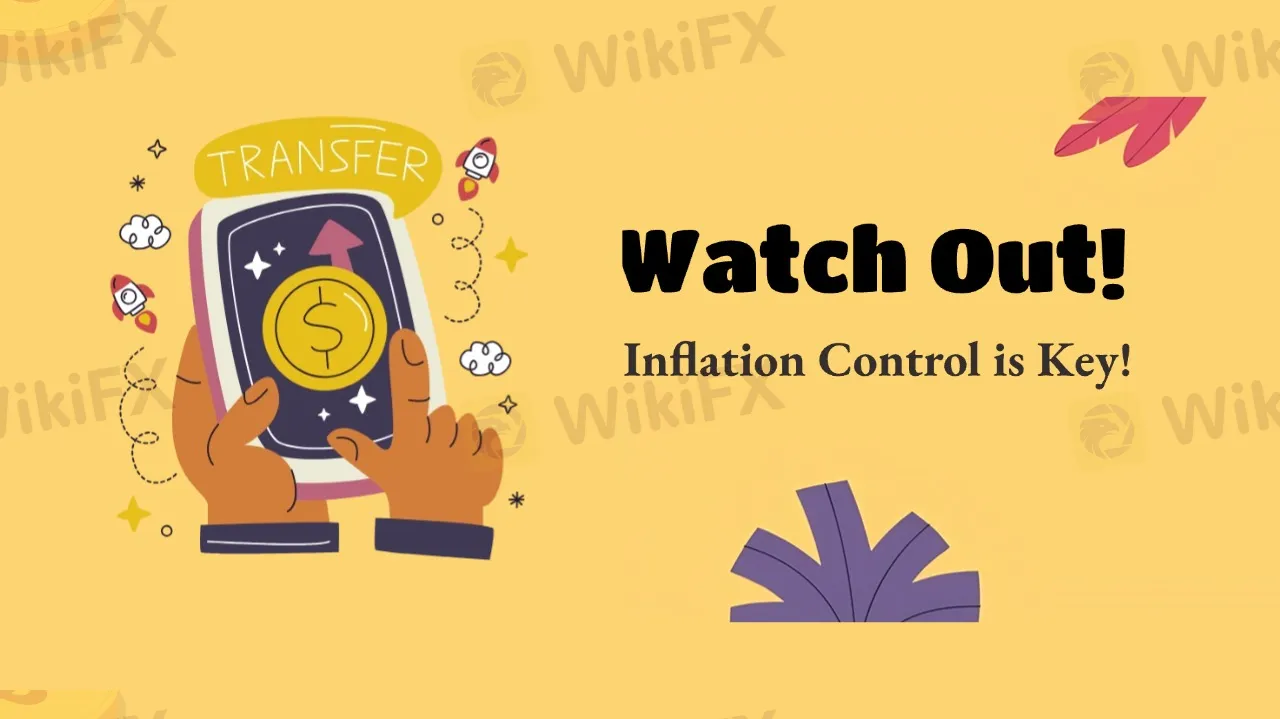Watch Out! Inflation Control is Key!
Abstract:Recently, the stability of the Naira exchange rate has become a key focus in the market. The Central Bank of Nigeria (CBN) has implemented a series of monetary policy interventions, reducing the exchange rate gap between the official market and the parallel market to below 1%.

This stabilization has boosted market confidence and helped mitigate speculative risks caused by exchange rate volatility. However, despite the stabilization of the exchange rate, the overall economy still faces numerous challenges, particularly the unresolved issue of high inflation.
CBN has introduced policies such as the electronic foreign exchange matching system (B-Match) and the Foreign Exchange Code, significantly enhancing market transparency and curbing underground trading. Additionally, Nigeria's oil production has increased to 1.54 million barrels per day, and foreign exchange reserves have reached $39.4 billion, providing 9.6 months of import coverage. These factors combined have further stabilized the Naira and attracted more investor interest in the Nigerian market.
Inflation Remains the Biggest Concern
While the exchange rate has improved, inflation remains a major challenge for the Nigerian economy. As of January 2025, Nigerias overall inflation rate stood at 24.48%, with food inflation soaring to 26.08%.
High import costs, unstable agricultural production, and supply chain bottlenecks have all contributed to rising prices, keeping inflation at persistently high levels. Moreover, security concerns have exacerbated food shortages and logistical difficulties, putting additional pressure on ordinary citizens.
To effectively control inflation, the Nigerian government must adopt a comprehensive approach. First, strengthening agricultural infrastructure, boosting domestic production, and reducing reliance on imported food are essential. Second, optimizing supply chain management, lowering logistics costs, and improving market liquidity can help stabilize prices.
Additionally, the government should increase investments in the energy sector to ensure a stable power supply, thereby reducing production costs for businesses. At the same time, better coordination between monetary and fiscal policies is needed to maintain market stability and enhance investor confidence.
Overall, while the stabilization of the Naira exchange rate is a positive sign, inflationary pressures remain a serious concern. The government and CBN must continue pushing forward with reforms and strengthening policy coordination to ensure long-term economic stability.
Read more

Broker Comparsion: FXTM vs AvaTrade
FXTM and AvaTrade are two well-established online brokers offering forex and CFD trading across global markets. Both enjoy strong reputations and high ratings on WikiFX—FXTM holds an AAA overall rating, while AvaTrade scores 9.49/10, indicating they’re regarded as reliable choices by the community. However, since brokers have great reputation in the industry, how do we know which one is more suitable for individuals to invest in? Today's article is about the comparison between FXTM and AvaTrade.

Pi Network: Scam Allegations Spark Heated Debate
A whistleblower report has surfaced, casting doubt on the legitimacy of Pi Network, alleging psychological manipulation, opaque operations, and potential financial exploitation. What is your take on this?

Webull Listed on Nasdaq Following SPAC Merger with SK Growth
Webull and SK Growth complete their business combination, with Webull now trading under the ticker “BULL.” App hits 50 million downloads worldwide.

UN Warns Asian Scam Operations are Spreading Worldwide
UN report reveals Asian scam operations expanding globally, targeting Africa, Latin America with cyberfraud, generating billions amid crackdowns.
WikiFX Broker
Latest News
Love, Investment & Lies: Online Date Turned into a RM103,000 Scam
Broker Took 10% of User's Profits – New Way to Swindle You? Beware!
Pi Network: Scam Allegations Spark Heated Debate
Broker Comparsion: FXTM vs AvaTrade
Account Deleted, Funds Gone: A New Broker Tactic to Beware Of?
Broker’s Promise Turns to Loss – Funds Disappear, No Compensation!
StoneX Subsidiary, Gain Global Markets Bermuda, Penalized for Trading Misconduct
El Salvador and U.S. Launch Cross-Border Crypto Regulatory Sandbox
The Instagram Promise That Stole RM33,000
Coinbase Launches Bitcoin Yield Fund for Institutional Investors
Rate Calc
